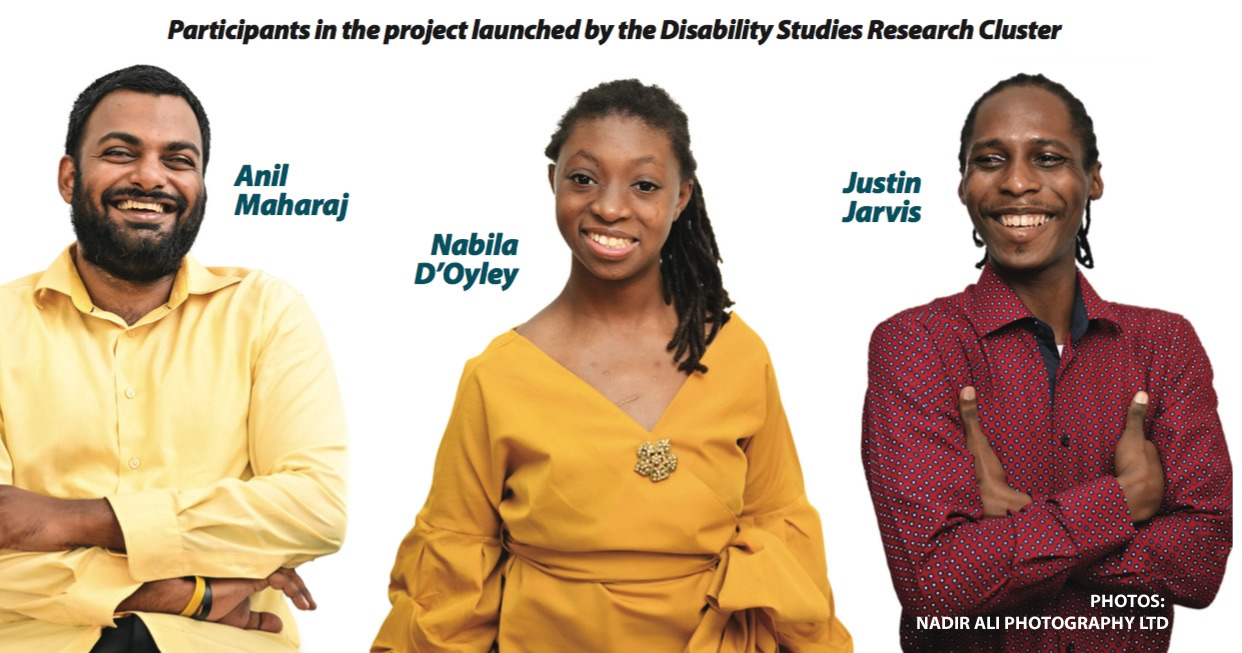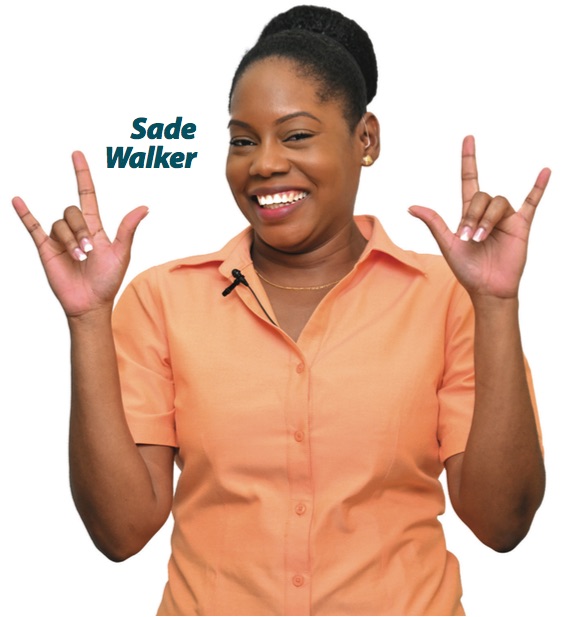
“People with disabilities can certainly contribute to society. We just need to be creative and give them a chance,” says Katherine Agong.
“My biggest hope for people such as my daughter Nabila is that they will be able to live long, happy lives, and to be content and confident in themselves. For my daughter, I just want her to do her best and to reach her full potential, no matter what that is.”
Katherine’s daughter, Nabila, is one of several participants in a project launched by The UWI to raise awareness about the issues people with disabilities face in Trinidad and Tobago, as well as to highlight their achievements and contributions to society.
The campaign was spearheaded by the chair of the Disability Studies Research Cluster at the Sir Arthur Lewis Institute of Social and Economic Studies (SALISES) Dr Bepyher Parey, as well as fellow cluster members Dr Elisabeth Kutscher and Ms Hannah Enightoola. It was launched in commemoration of the International Day of Persons with Disabilities in December of last year.
The team sought out about 30 individuals with various disabilities, spanning physical, intellectual and sensory, who were contributing to society in some way, and conducted a series of video interviews. The videos were made public earlier this year.
“I saw a recruitment ad for the project that Dr Parey had posted on LinkedIn,” says Katherine. “I am always looking for opportunities to advocate for people with disabilities in Trinidad and Tobago, so I thought that this would be a good way to show the rest of the country, and the world, that someone who has intellectual disabilities, someone like my daughter, still has purpose and can play a good role in society.”
Her sentiments mirror those of Dr Parey and her team, who stress that their work is not only to speak about disabilities, but also about capabilities. The awareness project is just one way that the cluster seeks to show that all citizens have something to offer society once they are equipped with the correct skills and given the right opportunities.

Unfortunately, the ongoing research done by the cluster continues to show that T&T is far from being a society which offers equal access to opportunities to people with disabilities. The results of analysis of the complaints made by people with disabilities to the Equal Opportunities Commission (EOC) are shocking.
“The truth is that many persons with disabilities in this country live in poverty,” says Dr Parey. “Our cluster did in-depth research into formal complaints made to the EOC and found several cases of people being asked to resign because of a disability. It may not be national policy that forces persons who develop a disability later on in life to leave their jobs, but it is unfortunately the policy of a lot of companies, something that could be considered unjust.”
Another issue which surfaced from the research carried out by Dr Parey's team is the lack of support, both emotional and financial, for members of the disability community. It is a sentiment that is echoed by one of the other participants on the project, Justin Jarvis, who had to undergo a double amputation of his legs at the age of 23 due to a condition known as vasculitis.
“I grew up in Mayaro, close to the beach, and sports were always a big part of my life,” Justin said. “Whether it was swimming, athletics, or playing football on the beach with my friends, sports were always something that motivated me. For a time, I also believed that my calling on this Earth was to be a dancer. So, you can imagine how devastated I was to lose my legs at such a young age and have to re-evaluate everything I did.”
While awaiting amputation at the hospital, it became apparent to Justin that there was not much government assistance for people in his situation.

“Here I was, this young man who was about to undergo an amputation, and there was no sort of support from any kind of counsellor to help me mentally prepare myself for this sort of life transformation.
“Perhaps as a young sports fanatic who was about to lose my legs, it would have been good to have someone visit me and give me some sort of hope. I think there is definitely more room for people in the government to step in and find ways to make the transition a bit easier for people such as myself.”
While the project was able to help bring many such issues faced by persons with disabilities to light, what was most striking for those involved was just how much the participants have all been able to overcome in their personal lives, in spite of their many challenges.
“What was most inspiring for us as a team was to witness the resilience displayed by the participants,” says Dr Parey “More than anything, what we want people to know is how much these people are capable of contributing. There is a lot of talent in this community, so we need to continue to strive to remove the barriers preventing them from achieving their true potential. The truth is that this current legislation does not support equal opportunities for persons with disabilities, and this is something that needs to be changed.”
Both the videos and articles from the public awareness campaign can be accessed on the SALISES official YouTube channel as well as their website, tinyurl.com/salisesdsrc.